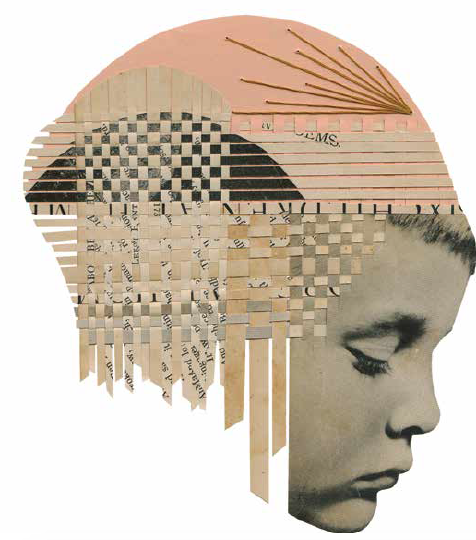
Art by Hollie Chastain
Beauty Parlor Seder
Looking back on a childhood of poverty
A swirl of aromas fills my nose the minute I start climbing the rickety spiral staircase: oniony chicken paprikash, dill-infused matzo ball soup, and vinegary cucumber salad propel me up to the second-floor landing of the Brooklyn tenement, where I also detect the distinct perfume of hairspray.
It is 1963, I am five years old, and my mother and I have just arrived at the apartment of her beloved Hungarian aunt and uncle, Margaret and El, who I know as Mutzah néni (‘nay-knee’) and Uncle El. A beautician, Mutzah operates a full-service beauty parlor in her highceilinged living room. We come here almost every week to visit, and so she can do Mom’s hair and give me a manicure.
Today is different.
In the middle of the hulking, black hair-washing sinks, swivel chairs, and hair dryers that encircle the room is a long dining table exquisitely set with a lace cloth, bone china, and crystal goblets.
It is the first night of Passover, and we are here for Seder.
It is as unconventional as a Seder setting can be. But then, there is nothing conventional about the way my mother and I are Jewish.
By blood we are Jewish. Religiously we aren’t and culturally, barely. We don’t belong to a synagogue, have mezuzot inside our doorframes, or kosher dishes in our kitchen. We serve dairy with meat, eat deep-fried scallops on Friday nights, bacon on Sunday mornings, and Wonder Bread French toast throughout Passover. During the High Holy Days, when even fair-weather Jews spend a few hours in synagogue, my mother makes a halfhearted attempt at tradition; she cooks lavishly, lights candles, prays, lets me wear my Star of David, and still makes me go to school. We light the menorah on all eight nights of Chanukah, while a few days before Christmas we go to Alexander’s department store so I can visit Santa. I receive no Chanukah presents but on Christmas morning I find one under a “tree” that my brother makes out of newspaper.
These mixed-up rituals confuse me. But what confuses me most is the disconnect between my image of what being Jewish means and my reality as the daughter of a single, alcoholic, and emotionally erratic mother whose gradual unraveling lands us on welfare. My life, especially as I get older, looks nothing like that of the Jewish kids I know. It defies every stereotypical notion I associate with being Jewish: having an intact family, material wealth, Jewish learning, and becoming a Bat Mitzvah. In my friends’ homes, Friday night dinner welcomes Shabbat but in mine it is like any other, with the clink of ice in my mother’s cocktail breaking the silence. Alienated and ashamed, I conclude that being Jewish is everything I am not.
Especially at Passover.
All I know about this holiday is that it’s the one day a year when I must sit quietly at dinnertime—before eating—while my great Uncle El, a white-haired pipecleaner of a man with a phlegmy voice, recites the entire Haggadah in Hebrew.
Like the rest of my mother’s Hungarian-born family, Uncle El emigrated with Mutzah to Brooklyn in the early 1920s to escape Jewish persecution. A religious man, he attends shul twice a day, on his way to and from his small tailor shop. Typically gentle and softspoken, Uncle El turns tyrannical during Seder, permitting no questions or discussion, and aiming his punishing glare at anyone who dares to utter the slightest sound, yawn, cough, or shift in a chair. That is usually me.
The only child at a table with a bunch of elderly Hungarian relatives, I am hungry and bored. As Uncle El begins the service, I lean back to see if I can reach the neck-rest in the hair-washing sink, inviting his evil eye and a swat from my mother. “When do we get to EAT?” I whisper to Mom. Uncle El, glowering, clears his throat. Like a medic administering first aid, my mother springs into action. She grabs the Manischewitz wine, pours some into my glass, and then pumps in seltzer from a glass bottle. It’s impossible to soundlessly pump seltzer but Mom moves fast while Uncle El scowls and waits. I down the spritzer like lemonade and Mom, a Scotch drinker who has no interest in sweet grape wine, quickly mixes me another, intent on shushing me, even if it means boozing me up. It works. The cocktails still my hunger pangs and mellow me. Uncle El resumes reading, his voice fading gently into the background as I float far away from the Seder table and begin a slow visual tour of the beauty parlor.
I know this room by heart but never tire of exploring its haircutting stations, each with its own large round wall mirror, collection of hairsprays and styling gels, and set of brushes and combs soaking in tall, cylindrical jars filled with aquamarine-colored liquid. “Baruch Atah Adonai…” El drones, as I admire the creamy-skinned women smiling down from the posters on the walls, and long for a classy up-do or beehive to replace my dopey pixie haircut. “Elohenu melach haolam…” El mumbles, as I zoom in on the manicure table and its multicolored pyramid of tiny nail polish bottles, arranged in graduating shades, the palest whites at the bottom, and the spiciest reds on top. “Vat color do you vant?” Mutzah asks at the beginning of every manicure, as she plunges my fingers into a small dish of warm soapy water to soften my cuticles before gouging them with one of her sharp instruments. She attacks my nails like dirty potatoes, scrubbing them furiously with a stiff-bristled brush, bringing tears to my eyes. “Oy-yoy-YOY, so DIRTY!” she scoffs. Then, with tiny sharp scissors she cuts my nails short, demolishing my dream of having long, tapered fingernails like the women in the posters. Alas, by the time she finishes, my fingers look like pudgy stumps and my hands, drying on a small white hand towel, like fat meat patties.
The only thing buoying my spirits is the hope of choosing my color. I always point excitedly to the single reddest bottle atop the pyramid, only to hear, “Oy-yoy-YOY, too grown UP!” as Mutzah automatically grabs “Pink Cloud,” a color that is barely visible after two coats. I don’t let myself cry because I’m afraid of irritating her. The fact is I’m afraid of Mutzah just like I’m afraid of El. My mother insists they adore me but I detect no love in their stern demeanors. Even when Mutzah cuts my hair, insisting that a pixie, like cod liver oil, is good for me, she seems angry, using a hand-razor instead of scissors to shave off my curls, as if impatiently peeling a carrot.
I am too young to understand the cause of what feels like Mutzah’s perpetual annoyance. Only when I am older will I learn about her anguish over fleeing Hungary and, later, seeing my mother, whom she cherishes, depressed and impoverished, struggling to raise me alone. The bond between them is tight. Mutzah is Mom’s favorite aunt, her father’s older sister. She took Mom under her wing after my grandfather divorced my grandmother for having an affair. Mom was 16 at the time.
The divorce devastated Mom. It was one of many losses that she blamed for shattering her faith in Judaism and God. She also blamed the slaughter of her extended family in the Holocaust, the death of her first husband that left her to singlehandedly raise my two half-brothers, and her brief and violent marriage to her second husband, my father. It was after her first husband’s death that she began to drink.
I don’t remember how old I was when I began making the connection between the caramel-colored beverage Mom drank and her disintegrating mood. I don’t recall the first time I realized that her breath, which usually smelled of coffee and cigarettes, began smelling like something else in the late, and sometimes early, afternoon. I don’t know when I discovered that just beneath the breakfront drawer, where she stowed a thick bar of Hershey’s chocolate, were several bottles of liquor, some light brown, some clear. I don’t remember when I began noticing how she struggled to wake up in the morning.
I do remember, from the time I was very young, thinking about God and wanting to know if she believed in Him. And I remember how her answers changed depending on what she was sipping.
“I believe God is in my heart,” she would say, sitting with a cup of coffee. “I used to believe in God,” she’d say when nursing a Scotch. “But what kind of God lets a Holocaust happen? Or lets a man in the prime of his life die, leaving a wife and two little boys?” I also remember that as soon as the High Holy Days ended she insisted on putting away my Star of David. “It’s not necessary to advertise that you’re Jewish,” she would say.
If this admonition to hide my Jewishness made me feel afraid to be Jewish, Mom’s drinking, depression, and inability to work as I got older made me feel ineligible. Even if she could have afforded to send me to Hebrew school, I doubt she would have done it, given her deep disappointment in God.
Whether Mutzah or Uncle El knew any of this I don’t know. What Mutzah did know was how hard my mother struggled to make ends meet. Unlike my grandmother, with whom Mom always fought, Mutzah was Mom’s closest friend and confidant. They spoke on the phone several times a week, always in Hungarian, probably to prevent me from eavesdropping. And, they talked nonstop during our weekly, daylong Saturday visits, with Mutzah feeding us multi-course lunches in between coloring, cutting, setting, and combing out Mom’s hair. Mom didn’t need to have her hair done every week, but the free beauty treatments, manicures, and meals were Mutzah’s ways of caring for us.
So were the Seders. Although they didn’t signify to Mom or me what they did to Mutzah and Uncle El, they placed her among people who loved her dearly, which she sorely needed.
As for me, I continued to dread Passover for many years because it rekindled not only painful childhood memories but also my shame over how Jewish I wasn’t. It would take my mother’s death, my own marriage, and motherhood for me to celebrate this holiday, and the way of being Jewish that I would eventually find.
Andrea Kott’s essays have appeared in the New York Times, the Journal of the American Medical Association, and other publications. This essay is from her forthcoming memoir, Salt on a Robin’s Tail: An Unlikely Jewish Journey Through Childhood, Forgiveness, and Hope (Blydyn Square Books).
3 comments on “Beauty Parlor Seder”
Comments are closed.

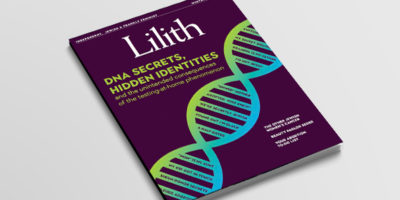
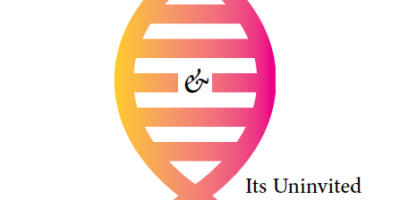
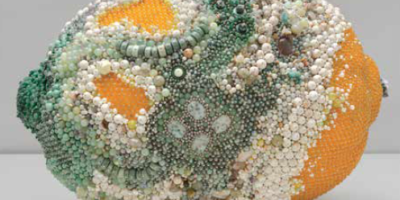
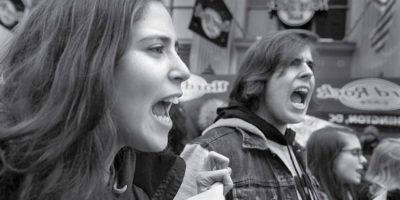

This is a resonant, moving story with vivid descriptions and a thought-provoking theme. A lovely read!
Beautifully written, and evocative of so many family gatherings. Thank you for sharing!
Extremely moving and beautifully written. I look forward to reading Andrea Kott’s memoir.